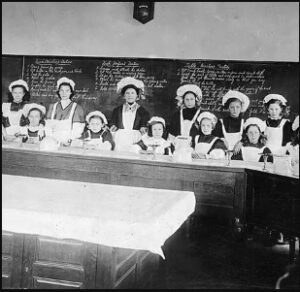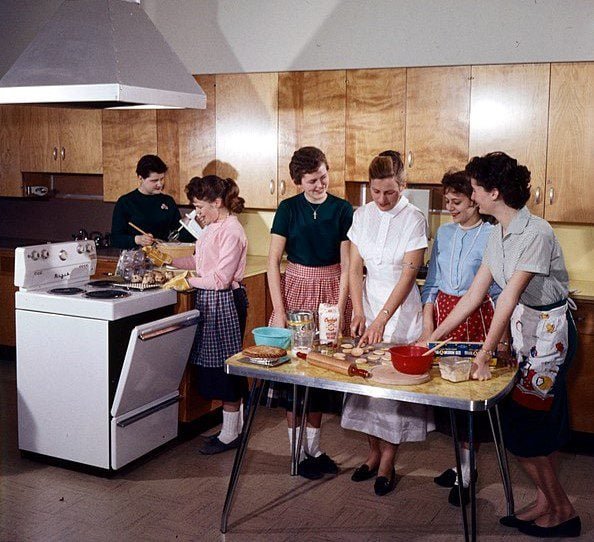Do you remember the days when school featured classes like home economics or home studies? If you completed your education before the year 2000, you might have had the chance to take such a class—especially if you were a girl.
These courses were undeniably beneficial in imparting essential skills for managing a home and family.
In today’s society, it’s increasingly common and accepted for both men and women to share responsibilities at home. However, the trend of teaching home economics is fading, with fewer schools offering children—regardless of gender—the chance to learn the necessary life skills that carry into adulthood.

There’s a growing call from parents and educators alike to revive home economics in schools. This push stems from the realization that while subjects like Mathematics and History are fundamental, they don’t cover the practical skills necessary for daily living.
With the hustle and bustle of modern life, many parents have lengthy workdays, leaving high school students coming home to empty houses.
These young individuals often need to fend for themselves, taking care of cooking, cleaning, and laundry. But the real question is, how many of them receive formal training on these tasks at school?
The benefits of home economics are clear; they equip students with independence. For example, a study from 2020 revealed that 62.7% of the 3.1 million high school graduates in the US went on to enroll in college. As these young adults transition from their homes to dorms, they’re suddenly on their own.
They’re managing tasks like preparing healthy meals, keeping up with laundry, and maintaining tidy living quarters. All these responsibilities become much easier if they’ve been taught these skills during their schooling years.
Societal roles for women, both at home and in professional environments, have changed dramatically. Women are no longer expected to solely dedicate themselves to cooking, cleaning, and child-rearing—unless they choose to, of course. The ruling concept is about personal choice and equal opportunity.

While basics like cooking, washing, and first aid are valuable lessons, imagine if home economics curricula expanded to include changing a tire, filing taxes, or even replacing a lightbulb. Many adults struggle with these tasks, simply because they were never taught.
Providing a structured environment where children can learn these skills seems incredibly logical, yet often subjects with less immediate practical application take precedence in school curriculums.
Ultimately, when school resources fall short, parents remain a pivotal influence, able to teach numerous practical life skills at home. Nevertheless, a dedicated class would ensure these vital lessons are universally available, giving every student a better chance to succeed in life.
If home economics were reinstated, our children would not just be prepared academically but would also thrive in real-world settings. Let’s reflect on the possible transformations and life lessons we can offer our young ones by bringing back these invaluable classes.
We’d love to hear your thoughts and experiences. Do you believe schools should bring back home economics? Share your opinions in the comments below!




